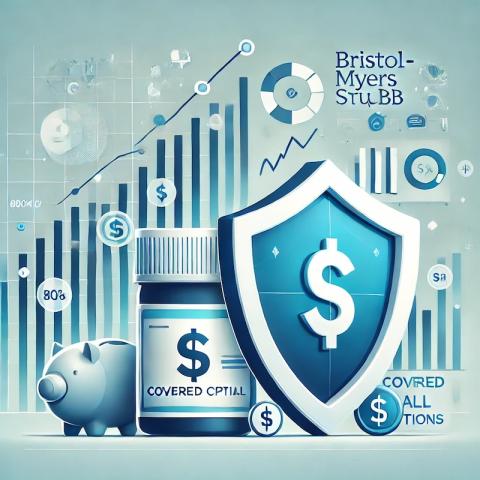On January 6, I executed a simple yet effective options strategy: I purchased 101 shares of Bristol-Myers Squibb (ticker: BMY) at $56.13 per share and simultaneously sold a single in-the-money (ITM) covered call with a strike price of $56, expiring this Friday, January 10. The premium received for the call was $0.50 per share. Here’s a breakdown of the reasoning behind this trade and the strategic choices I made.
Buying 101 shares instead of the typical 100 shares allowed me to hedge slightly against any rounding or margin errors. Most brokers process covered calls with 100 shares, but having an extra share:
- Cushions the Portfolio: If BMY’s stock fluctuates, I still hold an extra share after the option is exercised.
- Flexibility: I could sell the additional share at the market price or hold it long-term for potential upside.
This minor adjustment is a simple tactic that gives me some extra wiggle room while maintaining the primary focus of the covered call trade.
Why an In-the-Money (ITM) Covered Call?
Selling an ITM covered call can provide several benefits depending on market conditions:
Enhanced Downside Protection:
- The $56 strike price is below my purchase price ($56.13), meaning the intrinsic value of the call already covers part of my entry cost.
- With the $0.50 premium, my effective breakeven price is $55.63 ($56.13 - $0.50).
Guaranteed Return if Called Away:
- If the stock closes above $56 on January 10, the shares will be called away.
- My total profit in this scenario would be $0.37 per share ($56 strike + $0.50 premium - $56.13 cost), representing a modest but guaranteed return within a 4-day period.
Higher Probability of Assignment:
- An ITM call is more likely to be exercised, allowing me to lock in the outcome and redeploy capital quickly.
- This is ideal in a week with limited upward momentum in the stock’s price.
The choice of a $56 strike price was strategic:
- Close to Purchase Price: It minimizes the risk of being stuck with a depreciating stock while still capturing premium income.
- Quick Expiry: With the call expiring in just four days, I can potentially turn around and execute another options trade in the following week.
The $0.50 per share premium represents a key component of this trade:
- Annualized Return: Over four days, this equates to an annualized yield of approximately 8.1% ($0.50/$56.13 * 365/4). While this is short-term, it demonstrates how premium income can enhance returns.
- Downside Cushion: The premium offsets some of the cost, reducing my effective risk in case the stock declines.
What Happens Next?
If the Option is Assigned:
- I’ll sell 100 shares at $56, keeping the $0.50 premium and a small gain on the trade.
- I’ll still retain one share of BMY for long-term holding or future trades.
If the Option is Not Assigned:
- I’ll keep the premium and 101 shares of BMY, which I can then use to sell another covered call or hold for appreciation.
Why Bristol-Myers Squibb (BMY)?
BMY is a solid pharmaceutical company with stable fundamentals, making it an excellent candidate for conservative options strategies:
- Dividend Yield: With a dividend yield of around 3.5%, BMY offers income potential even without options trading.
- Low Volatility: Its price movements are relatively predictable, reducing risk in short-term trades.
- Sector Strength: As a healthcare stock, BMY has defensive qualities, especially in uncertain markets.
This trade highlights how combining stock ownership with options strategies can create multiple streams of income while managing risk. Selling an ITM covered call on BMY provided a safe way to generate a quick return while offering downside protection.
If you’re considering a similar approach, ensure you choose stocks with solid fundamentals and use strike prices and premiums that align with your risk tolerance and market outlook. Options trading is as much about discipline as it is about opportunity.
